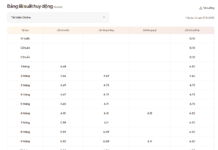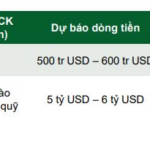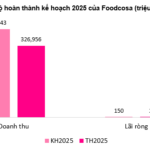According to HUBA, due to the difficult capital situation, the State Bank has issued Circular No. 02 of 2023, allowing the restructuring of repayment terms and keeping the debt group unchanged to support customers facing difficulties; at the same time, it continues to implement a 2% interest rate support policy for loans.
Banks are also promoting lending, but small and medium-sized enterprises cannot access capital due to not meeting the requirements for collateral or not qualifying for loans.
HUBA’s survey shows that up to 41% of businesses no longer have legally sufficient collateral to borrow capital. Meanwhile, the valuation of agricultural land assets is very low, leased land assets cannot be collateralized, and other assets are devalued as inflation increases. “Banks should consider increasing the collateral ratio for these assets, expanding lending according to contracts, with assets and property rights formed in the future” – HUBA recommends.

Many small and medium-sized enterprises no longer have collateral assets to borrow from banks.
HUBA also recommends that the debt extension policy should be accompanied by the debt rescheduling policy, which means that businesses can extend the repayment of the extended loan capital in the last year of the loan term instead of having to pay immediately when the term expires, doubling the amount to be paid in the following year, causing double difficulties for businesses as in the past.
Also related to capital issues, HUBA recommends that the Ho Chi Minh City government consider simplifying the procedures for lending to boost investment demand for supporting industries, focusing on supporting capital sources and preferential policies for large projects, establishing a system of specialized factories capable of producing complete component clusters to meet the requirements of global customers.
“Supporting industries primarily operate in mechanical engineering, electrical and electronics, plastics, rubber, and chemicals… in recent years, they have been evaluated as not actively participating, and even many businesses have declined due to lack of orders and high input costs.
In addition, the current supporting industrial products are mostly discrete components, difficult to meet the requirements of the export market, and businesses are bearing quite high interest rates (7%-8%)” – the report stated.
T. Nhan














